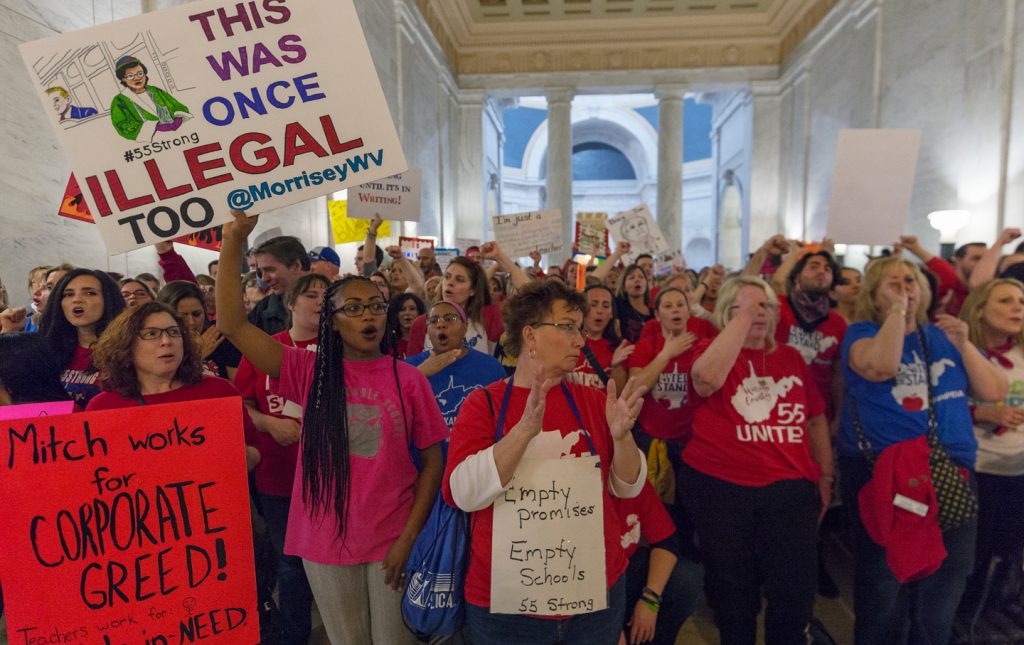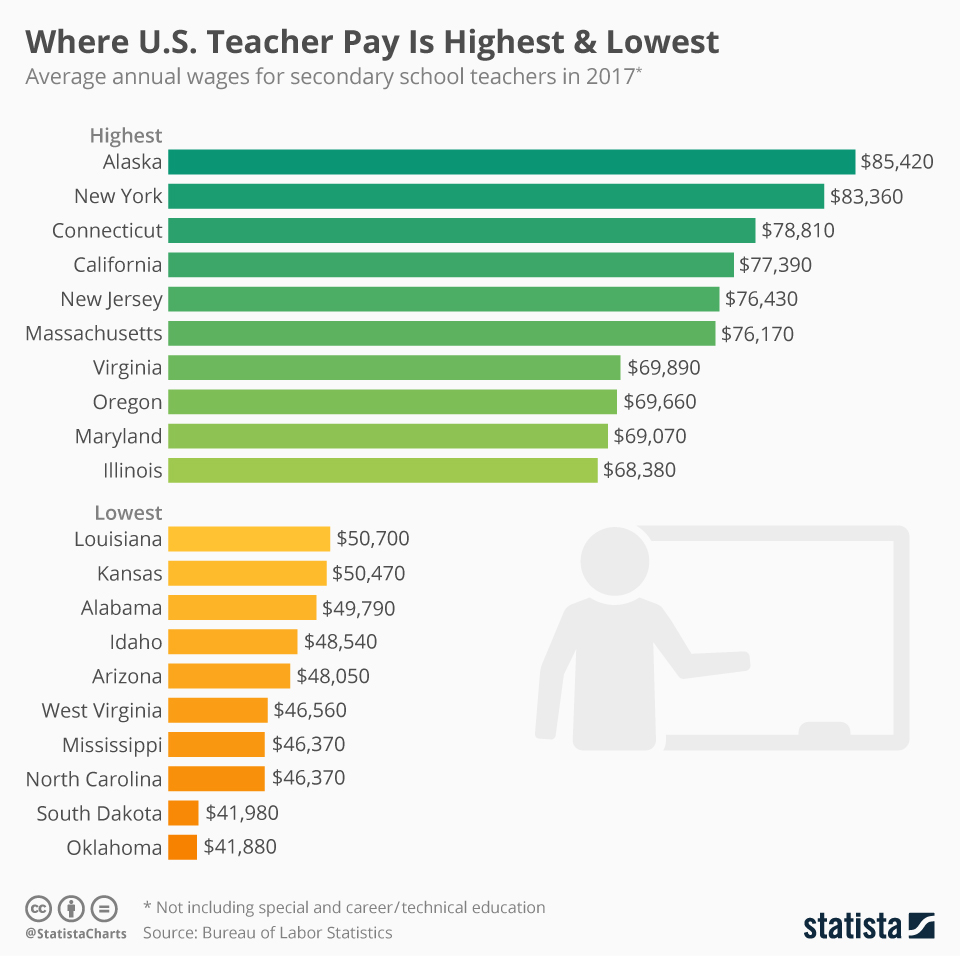By: Khensa Rahman
West Virginia’s teachers fight for higher pay has extended for nearly 2 decades since their first strike in March 1990 where 47 of all 55 counties participated. In February and March of 2018, public school teachers from all 55 counties went on strike for a higher income and student and funding related concerns (Figure 1). In my opinion, West Virginia public school teachers should have a higher salary to support their families financially, help them pay for rising health care costs, and make sure they stay in West Virginia as opposed to working elsewhere.

Among the top five lowest teacher salaries in the United States, West Virginia holds a low average pay of $45,240 compared to other states such as California, Connecticut, and Alaska. These states have an average salary of over $30,000 more (Figure 2).

Due to this low pay, many teachers take second jobs. Teachers also pay a good bit for their classroom supplies. In 2018, the National Center of Education Statistics released a study saying 94% of public school teachers

spend their own money on class materials. Katie Endicott (Figure 3), a teacher from Gilbert, WV reported that she could not pay her bills. She said the state is raising costs, but not adequately increasing teachers salaries.
The rising cost of healthcare within the Public Employees Insurance Agency (PEIA) affects teachers all across West Virginia. Lisa, a teacher in Kanawha County explained to the World Socialist Web Site (WSWS) that her daughter had a stroke. After her local neurologist could not identify the problem, she was referred to the Cleveland Clinic. She reported to WSWS the issue brought up by PEIA: “I was told right away [by PEIA] that it was denied. I was on the phone crying, begging.” PEIA’s healthcare plan’s financial issues also affected a teacher named Betsy Atwater. She commented on her poor healthcare to the WSWS “I stand strong with Fayette County, I am here tonight to say this [crisis] is not my responsibility. I have taught in this state for 42 years, I have given my blood, my sweat, and my tears to teach disabled students in this state and I deserve a great healthcare plan. I should not have to beg…”
I think we should also pay our teachers enough to prevent serious financial issues so they will stay in West Virginia and continue to educate the youth. Former Oklahoma teacher Shawn Sheehan (Figure 4) became so fed up with Oklahoma’s lack of funding, he eventually moved to Texas with his family in order to make more money. In fact, poor teaching conditions (low pay, etc.) have led to a teacher shortage in Oklahoma leading the state to deploy about 2,000 emergency

certified instructors. In 2017, Metro News reported 713 teacher vacancies state wide. A growing crisis like this in West Virginia could be disastrous.
Teachers like Katie Endicott shouldn’t have to worry about paying bills or taking extra jobs along with their work as a teacher. We should give teachers a higher income so people like Lisa don’t have to worry about getting their children medical attention. If we don’t treat our teachers well and pay them enough, they will leave to find work in other states which could lead to a situation similar to Oklahoma. By giving West Virginia public school teachers a higher income, we could prevent all these issues.
Figure 3:
Figure 4:

